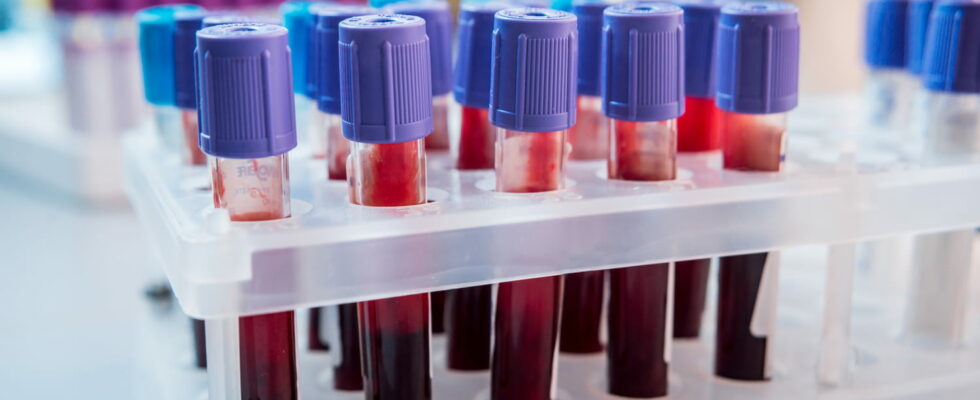The blood group could have an influence on the risk and mortality of cancer according to researchers.
Even today, the causes of appearance of stomach cancer remain vague. Risk factors have been identified, some of which are “modifiable” such as a Helicobacter pylori bacteria, a diet too rich in salt or nitrates, smoking, sedentary lifestyle and the professional environment (working in the industry Coal, metals or rubber) and other “non -modifiable” such as age, sex (this cancer is more common in men), the presence of hereditary genes or family history of cancer. More surprisingly, the blood group could affect the risk of developing stomach cancer.
London researchers highlighted the link between “blood group” and “stomach cancer” in a publication published in the British Medical Journal Then other studies have looked into this subject. Among them, a Taiwanese study conducted on a cohort of 340,000 people and published in the journal Epidemiology cancer has shown that the risk of stomach cancer was 5% higher in people in blood group A (most widespread in France) compared to people in the blood group O (second most widespread blood group in France). Even more surprising, the mortality rate linked to stomach cancer was 47% higher in groups A compared to people in group O. Rhesus (positive or negative) did not seem to have any importance and “”No association was observed for blood groups B or AB“Specify researchers.
Despite this scientific discovery, learned societies want to reassure the general public. A risk factor is not a cause in itself, recalls the European Society of Medical Oncology (ESMO). Admittedly, it increases the risk of the appearance of an illness, but it is neither sufficient nor necessary to cause cancer and even less predict his gravity. In other words, some people with risk factors will never develop stomach cancer, while others presenting any risk factor will develop one all the same.
An opinion shared by Renato Micelli Lupinacci, professor of pancreatic, hepatobiliary and oncological surgery, which we interviewed: “A priori, we can say that there is an over-risk in the blood group taking into account the existence of these epidemiological studies, but at present we have no known pathophysiological mechanisms that can explain it . In other words, there is a proven correlation but we do not (yet) know the reasons for this“.
One of the hypotheses put forward by the researchers would be that group A would have less good inflammatory and immune responses to an abnormal signal, which could affect the proliferation and progression of malignant cells. “”Additional evidence is necessary before the mechanisms can be fully taken into account“, conclude the researchers.
